Hard agree, and not just because I'm a spreadsheet nerd. Why are we all here? Isn't it in the service…
Monday Morning Update 11/16/15
Top News
Muhlenberg Community Hospital (KY) notifies all patients, providers, and employees prior to July 1, 2015 that their information may have been exposed by a keystroke logging program that had been running on some PCs for several years. Interestingly, the FBI noticed “suspicious network activity involving third parties” and told the hospital it might have a problem.
I’m surprised it’s taken so long for a hospital to be hit by keylogger software since it is widely available and inexpensive (even Sears sells a USB memory stick version). This software is sold by B&H Photo for $40 and promises to run in stealth mode and to disable spyware detectors.
Reader Comments
From Blues Traveler: “Re: CareZone. My 90-year-old father is using it to share medical information. He can take smartphone photos of his medication bottles and it will convert those to create a med list that is 90 percent accurate (would love to see that technology in physician EHRs). You can set up reminders to take meds and order refills. Now my dad has his med list with him at all times and can print it. I also stored his insurance cards on it. You can make health notes and track your vitals. It’s great for managing the health of an older parent and I have access to his account for an emergency.” I mentioned Seattle-based CareZone when it was launched in early 2012 by former the former CEO of Sun Microsystems, but the company seems to have had nothing new to say since then.
From Parse Person: “Re: Bitcoin blockchain for storing patient information. As you mentioned, it’s a giant database that appends data to itself without every deleting anything. The problem is that even if you encrypt and anonymize EHR information, it still sits around forever. While it may be uncrackable now, 10 years from now the technology will probably advance enough that anyone interested can find and read your old health records. The only way around this is to just use the blockchain to link to some other database, which it sounds like the hackathon group did, but in that case you might as well not bother with the blockchain and just send your providers to the EHR database in the first place.”
From Pam Ramhofer: “Re: Voalte’s first user group conference. This was one of the most relevant conferences I have attended this year. Communication and alarm management challenges resonate throughout the healthcare industry. The user group shared creative solutions and best practice to provide communication efficiencies that result in getting critical patient information to the right person at the right time.” Pam is CIO at Sarasota Memorial Hospital.
From The PACS Designer: “Re: ICD. With the specificity that we get with ICD-10-CM/PCS, it makes real-time clinical decision support systems more practical. By using real-time processing, we get more efficient usages of resources and clinical staff with better patient treatment outcomes. What do you think about this concept?”
HIStalk Announcements and Requests
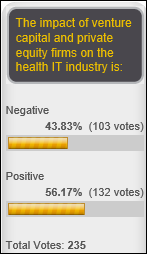
Slightly more poll respondents consider the impact of VC/PE as positive rather than negative. Frank Poggio added a comment, “The simple positive is VC/PE money funds the development that would not occur if there were no, or limited, funds available. But this real positive usually gets over run by the big negative. That is, VC/PE has a relatively short-term time horizon which typically forces decisions to be made based on near term ROI criteria first, and end user requirements (product) last.” New poll to your right or here: are recently announced Quality Systems (NextGen) changes positive or negative?


Mrs. Jones in South Carolina sent photos of her students, all of whom have been identified with intellectual or emotional disabilities, using the math manipulatives provided by our DonorsChoose grant. She says the students have so much fun with the tools that they don’t even realizing they are doing math practice, adding that the items will help close the educational gap between her students and their peers. Also sending photos was Ms. Sobczak, whose special need students in Grades 1-2-3 love the math games that “are a really fun way for the kids to learn and interact with one another while practicing some much-need skills.” I noticed that I’ve deployed $22,000 in reader donations and matching funds so far in 2015, with outside matching funds increasing the value of funded projects to a much larger amount.
Ben Rooks of ST Advisors sent $500 to my DonorsChoose project as part of his company’s program to donate a percentage of revenue to charity. The company’s donation provided these items:
- Two Chromebooks, math manipulatives, and easel pads and markers for Mr. Weber’s math class in Kealakekua, HI,
- A document camera for Mrs. Twigg’s elementary school class in Kansas City, MO.
- Printer supplies and paper for Mrs. McKnight’s first grade class in Columbia, SC to replace what they lost in the recent flooding there.
- A large math book library for Ms. Ahrstrom’s third grade class in Bronx, NY.
- Hands-on math games for Ms. Keplinger-Williams’ second grade class in Erwin, TN.
- A LEGO Mindstorms programmable robot for Mrs. Gamache’s gifted class in Davenport, FL.
- A Dot and Dash Wonder Pack and launcher to develop basic coding and problem solving skills for Mrs. Pryor’s kindergarten class in Woodward, OK.
One of the teachers we supported emailed to say that students will decide by fourth grade whether they love or hate math, so we’re hopefully influencing some of them in time to make a difference.
Last Week’s Most Interesting News
- Bloomberg Businessweek puts hospital medical device vulnerability to hacking on its cover.
- BIDMC CIO John Halamka, MD expands his call to dismantle the Meaningful Use program to reduce interference with patient care, free up vendors and providers for more innovative work, and prevent auditors from adding regulatory burden.
- Walgreens integrates MD-Live-powered video visits into its app and expands the program to 25 states.
- Quality Systems replaces its board chair as founder and board chair Sheldon Razin retires to make way for Jeffrey Margolis.
Webinars
November 18 (Wednesday) 2:00 ET. “Making VDI Secure and Simple for Healthcare.” Sponsored by Park Place International. Presenters: James Millington, group product line marketing manager, VMware; Erick Marshall, senior systems engineer of virtual desktop infrastructure, Park Place International. Deployment of a virtual solution can optimize the experience of clinician users. Attendees will learn how to address the evolving demands of security and mobility in clinician workflow to improve the quality of care.
November 20 (Friday) 2:00 ET. “The Athenahealth Leadership Institute Presents: Dr. John Halamka Interviewed by Jonathan Bush.” Sponsored by Athenahealth. Presenters: John Halamka, MD, MS, CIO, Beth Israel Deaconess Medical Center; Jonathan Bush, CEO, Athenahealth. Providers are fed up with interface fees and the lengthy, fragmented narratives we’re exchanging today. But what is the right course of action to help deliver better care across the continuum? Bring your questions as we join Dr.Halamka and Jonathan Bush to discuss the current state of healthcare and how we can improve care coordination and interoperability.
December 2 (Wednesday) 1:00 ET. “The Patient is In, But the Doctor is Out: How Metro Health Enabled Informed Decision-Making with Remote Access to PHI.” Sponsored by Vmware. Presenters: Josh Wilda, VP of IT, Metro Health; James Millington, group product line manager, VMware. Most industries are ahead of healthcare in providing remote access to applications and information. Some health systems, however, have transformed how, when, and where their providers access patient information. Metro Health in Grand Rapids, MI offers doctors fast bedside access to information and lets them review patient information on any device (including their TVs during football weekends!) saving them 30 minutes per day and reducing costs by $2.75 million.
December 3 (Thursday) 2:00 ET. “501(r) Regulations – What You Need to Know for Success in 2016.” Sponsored by TransUnion. Presenter: Jonathan Wiik, principal consultant, TransUnion Healthcare Solutions. Complex IRS rules take effect on January 1 that will dictate how providers ensure access, provide charity assistance, and collect uncompensated care. This in-depth webinar will cover tools and workflows that can help smooth the transition, including where to focus compliance efforts in the revenue cycle and a review of the documentation elements required.
Contact Lorre for webinar services. Past webinars are on our HIStalk webinars YouTube channel.
Announcements and Implementations
Voalte announces integration with Uber in a pilot project at Sarasota Memorial Hospital (FL), which will discharged patients a pre-arranged Uber ride to their medical appointments. The company also announces its work with UCSF to develop a clinician-facing patient wall that will use Twitter-like social media symbols and an upcoming reporting and analytics tool.
TeleTracking launches a cloud-based patient flow platform called TeleTracking IQ that integrates the user experience with multiple modules and reduces upgrade complexity.
Government and Politics
FDA launches a closed beta of PrecisionFDA, an open source cloud-based platform that allows researchers to upload and share precision medicine data such as reference genomes, bioinformatics pipelines, and genomic data.
Privacy and Security
A Verizon Enterprise Solutions analysis finds that PHI breaches happen in all industries, not just healthcare, as insiders and hackers can get insurance and other health demographic information from information stored by all kinds of companies. Many companies aren’t even aware that they are storing PHI, which has a high value to hackers.
North Carolina’s HHS reports that the information of 524 people was exposed when one of its employees sent a worksheet to health directors via unencrypted email.
Technology
Southern Hills Hospital (NV) pilots AccendoWave, tablet-powered software that monitors a patient’s EEG via a headband and earbuds to detect and report pain levels. The tablet also provides video and audio content to distract from the pain.
Apple co-founder Steve Wozniak tells conference attendees that the Apple Watch is improving, but he still isn’t a big fan of anything that comes between him and his phone. He also likes laptops better than tablets and adds that he’s not an Apple fanboy: “I don’t like being in the Apple ecosystem. I don’t like being trapped. I like being independent.”
Other
In England, the family of a woman who died in 2011 when her referral for gall bladder removal was lost between two hospitals in the same NHS trust that use different IT systems is awarded an unspecified settlement.
San Francisco Magazine gushes about the new UCSF Medical Center at Mission Bay and its 65-inch flat screen patient room TVs with built-in social media, robot-delivered meals, rooftop gardens, a teen lounge, and weekly bingo games. The 289-bed hospital and medical complex should be pretty swanky given that its first phase was estimated to cost $1.5 billion. Let’s see if outcomes improve.
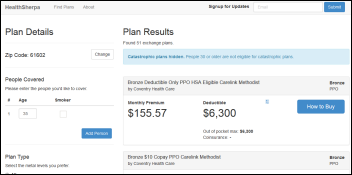
The New York Times covers an ominous phenomenon I reported weeks ago after playing around with Healthcare.gov, Stride Health, and insurance company sites: ACA-mandated plans may or may not carry reasonable premiums, but the real gotcha is in annual deductibles that can range from $3,000 to $6,000 and more. The paper found that more than half of Healthcare.gov plans have a deductible of at least $3,000, leaving patients (especially the desirable young and healthy ones) with insurance they can’t afford to use. That encourages them to simply drop their policies since they’ll be paying all of their medical expenses out of pocket anyway. It’s bad enough that middle-class patients have to come up with thousands of dollars before their hard-won insurance contributes anything, but another to providers who have to try to collect the money patients owe them (knowing that people don’t rank medical bills high on their must-pay list). It’s obvious to me that both patients and providers are going to be complaining loudly about what they thought ACA was going to do for them vs. what has actually happened. Not many people have a spare $5,000 lying around to pay an unexpected ED or surgery bill. Providers had better (a) look at point-of-service collections; (b) figure out ways to get patients on payment plans; and (c) expect their income and cash flow to take a beating due to commercially insured patients rather than just Medicare recipients. “Real” insurance is starting to look like that fake, late-night TV hawked “insurance” from years ago that was really just a discount card that few providers would accept.

This tweet by Nick Dawson of Sibley Memorial Hospital provides a good story that explains how uncoordinated healthcare (and healthcare information) is.
Sponsor Updates
- Valence Health and ZeOmega are named to Deloitte’s 2015 Technology Fast 500 list.
Blog Posts
- HIT Breakdown 12 – Healthy Planet: Opportunities and challenges (Nordic)
- T-System CHART Awards: Recognizing this quarter’s recipients (T-System)
- Operational Command Centers Yield Positive Results at Carilion & Rush (TeleTracking)
- Best Practices for HEDIS Record Retrieval (Verisk Health)
- Learning the Lessons of MHealth History (Voalte)
- Is Your Patient-centered Care Management Approach Really Patient-centered? (ZeOmega)
- Xerox Recognized as a Military Friendly Employer (Xerox)
- HCAHPS scores expected to determine up to 2% of hospital Medicare payments by 2017 (ZirMed)
Contacts
Mr. H, Lorre, Jennifer, Dr. Jayne, Dr. Gregg, Lt. Dan.
More news: HIStalk Practice, HIStalk Connect.
Get HIStalk updates.
Contact us or send news tips online.






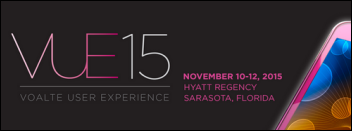
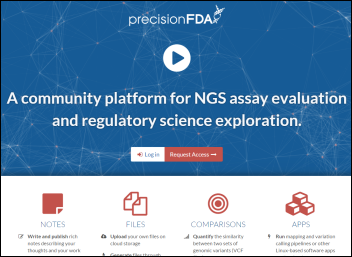
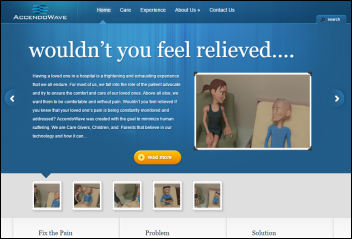

Agree on insurance and high deductibles and now the answer from one carrier, United through employer provided insurance will sell the patient another policy called Critical Illness insurance, you buy this to cover what’s not covered with the high deductibles. You can’t make this up. So when folks have a tough time paying their share of the monthly premiums already and have a high deductible, I guess the answer is to sell them even more insurance that one probably can’t afford on top of everything else. There’s the press release below. One might wonder how long of a waiting period this might have to pay out?
http://www.businesswire.com/news/home/20151112005072/en/UnitedHealthcare-Offers-Critical-Illness-Protection-Plans-Employers
I keep telling folks you can thank the quants that used to work at banks, hedge funds, and high frequency trading firms for all these new insurance models as they can ride them on top of the actuary models and see how each policy now will impact their stock prices. Just look at classifieds sometime and see all the ads for quants listed for health insurers.
There’s a ton of talk about health savings accounts out there as well, but United/Optum has a bank that holds a few billion in deposit on these accounts and the bank gives you a MasterCard to dump the money out when needed, as well as they get more tracking information on your behavior at the same time, the side business if you will. As soon as one hits the golden number of $2100 on deposit, then you qualify to put that money into mutual funds, which at that point is not under FDIC protection if you move the money and the bank will help you do all that. There’s marketing for that too. There’s another company, Health Equities that is not a bank and does the same sort of thing and bought out $400 million of HSA accounts from Bancorp. They want to get that available money into mutual funds for you.
So even with Health Savings accounts, you have to think about what you do before your savings for health care ends up in mutual funds if you don’t understand the entire program and maybe unintentionally make a decision to gamble a bit. So now due to high deductibles, we have a whole new bunch of models that also can end up costing you more money either in premiums or in some other fashion.
http://ducknetweb.blogspot.com/2015/10/united-healthcare-owns-bank-optum-bank.html
Go MedicalQuack! Welcome to the “business of healthcare”… Someone please show me the innovation that we’re gaining (i.e. What we won’t get with “socialized” medicine? Oh wait… That’s right… $5000 pills that have been around for 20 years…)